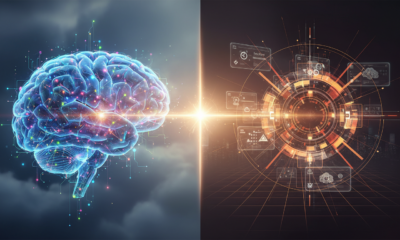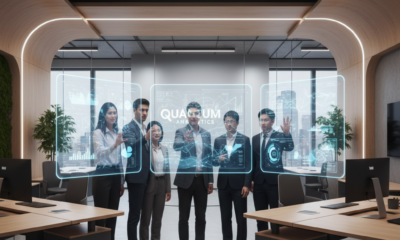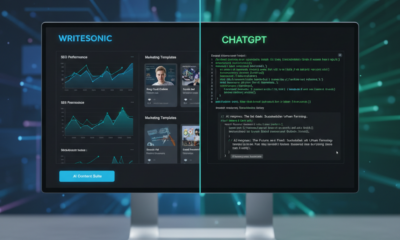

Gaming
xr update: the key vr news and insights for 2025
XR Update 2025: Enterprise VR News, ROI Signals, and Sector Breakthroughs
The XR Update across enterprises shows a decisive shift from pilots to production. Organizations are scaling Extended Reality workflows that directly impact safety, efficiency, and patient or customer outcomes. The most visible trend is the migration from isolated demos to integrated toolchains that connect headsets, cloud systems, and analytics dashboards—turning immersive content into operational knowledge. Healthcare systems, defense programs, and industrial plants are championing this change, confirming that the Future of VR is tied to process improvements, not spectacle.
Consider Riverbend Health, a regional hospital network that rolled out a medical-grade AR workflow. The launch of SnkeXR, a surgical-focused glasses system, offers a template: sterile-ready optics, clinical image overlays, and hands-free navigation. Surgeons gain in-the-moment guidance while scrub nurses view precision checklists. Outcomes include reduced cognitive load and fewer interruptions. Similarly, senior care programs like Rendever secured significant public funding for VR-based connections that support residents and caregivers, underscoring how Virtual Reality can tackle loneliness and therapy adherence in measurable ways.
Defense and aerospace extend this pattern. Red 6 integrated its AR training system on Boeing’s Apache testbed for rotorcraft evaluation, proving high-speed tracking and synthetic overlays can survive harsh conditions. Meanwhile, Kognitiv Spark deployed a secure AR support system on UK sovereign cloud infrastructure. Field technicians access encrypted annotations and remote expert guidance—vital for classified or sensitive tasks. For manufacturers, Augmentus is scaling an AI and 3D-vision robotics platform that simplifies adaptive automation; in tandem with MR-guided checklists, factories cut ramp-up time and reduce rework.
Retail is changing too. At Aurora Outfitters, a mid-market retailer, AR mirrors pair with at-home try-ons, cutting returns by focusing shopper intent. The difference in 2025 is multi-surface design: a shopper can see a garment in-store, continue the experience on a phone, and finalize a fit session on a headset—seamless personalization across contexts. With no-code creation tools arriving for teams, brand managers can produce seasonal experiences without waiting on specialized dev resources.
ROI is clearer because baselines are better tracked. Training time can be benchmarked, safety incidents measured, and quality metrics linked to specific steps. Enterprises also benefit from AI-powered assistants that structure XR sessions. Teams that adopt model customization can explore frameworks like this guide to model fine-tuning for tailored assistants to build domain-specific helpers embedded inside virtual workflows. For content marketing around immersive campaigns, creative leads increasingly rely on trusted roundups of AI video tools to produce 360° explainers and short-form promos that feed immersive funnels.
Enterprise adoption highlights and why they matter
Organizations prioritize use-cases with direct payoffs: faster training, fewer errors, and safer procedures. When XR touches regulated workflows, leaders respond positively to certifications and secure infrastructure. Defense-grade AR from Red 6 validates latency and tracking in motion; hospital-grade systems like SnkeXR validate sterility and visibility in surgical light fields.
- 🏥 Healthcare: Surgical visualization, pain distraction, and cognitive therapy improve patient journeys.
- ⚙️ Manufacturing: MR-guided diagnostics speed maintenance and reduce downtime by standardizing expert steps.
- 🛍️ Retail: AR fittings reduce returns and boost confidence through true-to-scale overlays.
- 🛰️ Defense/Aerospace: Secure AR/VR streams enable mission rehearsal without costly live exercises.
- 🏗️ Construction/Real Estate: Digital twins help stakeholders sign off faster on designs and compliance.
| Sector 🔍 | Use-case 💡 | XR Developments Impact 📈 | Notable 2025 Example ⭐ |
|---|---|---|---|
| Healthcare | AR-guided surgery | Higher precision, fewer interruptions | Launch of SnkeXR 🩺 |
| Senior Care | VR social therapy | Improved engagement, caregiver support | Rendever NIH grants 💙 |
| Defense | AR flight training | Realistic overlays at speed | Red 6 on Boeing’s Apache 🚁 |
| Industrial | Remote assist | Faster fixes, secure notes | Kognitiv Spark on sovereign cloud 🔐 |
| Manufacturing | Adaptive robotics | Quicker deployment | Augmentus investment 🤖 |
The throughline in this XR Update is pragmatic value: when teams see safety gains and time saved, adoption accelerates and the budget follows.

VR Innovations and XR Developments: Spatial Computing, AI, and Hardware Momentum
Hardware and AI are co-evolving, making Immersive systems both lighter and more context-aware. Spatial computing converts rooms into readable canvases; scene understanding informs UI layouts; and wrist, eye, and hand signals shrink learning curves. In the latest VR News, the ecosystem is broadening with devices targeting distinct segments, from enterprise to prosumer to lifestyle wearables.
On the headset front, Valve’s Steam Frame emerges as a wireless VR device designed for PC streaming and standalone sessions—bridging high-end Steam libraries with cable-free freedom. The Meta Quest line introduces a refreshed experience with the “Navigator” UI, spotlighting recent and pinned apps for faster flows. On the AR side, DPVR expands into smart glasses with a six-model G Series, aiming for mobility and comfort. And Magic Leap’s extended collaboration with Google focuses on display systems and spatial interfaces, signaling continual refinement in optics, sensors, and SDKs.
Microdisplay innovation is equally pivotal. RAONTECH’s P13 0.13-inch LCoS panel reduces size and power needs—practical wins that encourage everyday wear. Accessory ecosystems rush in, too: Even Realities introduced G2 smart glasses and an R1 smart ring that pairs AI cues with optical upgrades, merging wellness nudges with productivity. Outside XR, interaction tech forces a rethink; the acquisition of Ultraleap by ROLI brings precision hand-tracking into creative tools, hinting at touchless musical interfaces and spatial composition apps.
AI is the connective tissue for this wave of Tech Trends. Object detection, semantic segmentation, and generative assistants orchestrate more natural Mixed Reality interactions. Teams tuning AI for their spatial context can lean on resources like a practical playbook for fine-tuning AI models to construct custom on-device helpers. For storytelling and product demos that blend 2D and immersive assets, many studios consult a current landscape of AI video generation tools to iterate beats and drive consistent voice across channels.
Hardware and AI features that unlock new behaviors
Hardware progress isn’t just specs; it’s ergonomics, thermal balance, and sustained comfort. Battery placement, strap design, and field-of-view tradeoffs influence session length—a key factor for enterprise training. AI reduces friction by inferring intent and routing users to the right view. Upscaling and foveated rendering techniques—often discussed under banners like DLSS-style pipelines—extend performance on modest chips, keeping rich worlds smooth.
- 🧠 Contextual AI: Scene-aware prompts, hands-free voice, and gesture fusion reduce UI hunting.
- 🔋 Efficient optics: Microdisplays like P13 shrink payloads and power draw for glasses.
- 🕹️ Gaming to pro: Steam Frame bridges PC libraries with stand-alone freedom.
- 🧩 Accessory synergy: Smart rings, haptics, and trackers widen input vocabularies.
- 🖐️ Hand tracking: ROLI + Ultraleap port pinch-to-play ideas into creative suites.
| Device/Tech 🧩 | Segment 🎯 | Key Advantage 🚀 | Why it matters in 2025 🌟 |
|---|---|---|---|
| Steam Frame | VR prosumer | Wireless PC streaming | Library depth + mobility 🎮 |
| DPVR G Series | AR smart glasses | Multiple models for fit | Everyday wear potential 👓 |
| Magic Leap + Google | Enterprise AR | Advanced displays | Sharper overlays for work 🏢 |
| RAONTECH P13 | Optics component | Small, power-efficient | Longer sessions, lighter gear 🔋 |
| Even Realities G2/R1 | Wearable combo | AI + optical upgrades | Blended wellness/productivity 💼 |
As hardware iterates and AI scaffolding matures, the pipeline from concept to deployment tightens—translating VR Innovations into reliable, human-centered tools.
Immersive Collaboration and Workflows: XR Insights for Hybrid Teams
Collaboration is redefining presence. Teams no longer tolerate flat rectangles for complex planning; they want XR Insights that place data in the room. Microsoft Mesh and Meta Workrooms are evolving into full-stack collaboration layers where whiteboards gain depth, prototypes can be resized by hand, and avatars convey social cues that make distributed work feel less robotic.
NovaForge Manufacturing offers a snapshot. The company runs weekly MR audits on a digital twin of its assembly line. When a bottleneck emerges, managers annotate a 3D heatmap; maintenance pairs with a remote specialist who sees exactly what the on-site team sees. This cuts travel time and allows subject-matter experts to contribute to more locations. In robotics, 1HMX’s Nexus NX1 introduces a turnkey system for full-body teleoperation, letting experts “sit inside” remote machines—ideal for hazardous inspections or delicate tasks that still benefit from human finesse.
Information retrieval inside Mixed Reality is getting smarter, too. A major social platform struck a large deal to integrate conversational AI with verifiable sourcing, pointing to a future where workers ask a scene-aware assistant for citations mid-meeting. In consumer spaces, a high-profile partnership brought real-time, cited answers into a ubiquitous app, a trend that will leak into enterprise viewers next. Content teams preparing for these flows often prototype scripts and overlays with the help of up-to-date comparisons of AI video generators to keep demos crisp and on-brand.
Patterns that make collaboration in XR actually stick
Three principles sustain adoption: frictionless access, clear value, and shared standards. Invite links and identity management need to feel like regular video calls. Teams drive value when spatial canvases are paired with live data sources. And interoperability between viewers and file formats makes sessions predictable.
- 📎 Drop-in access: SSO and calendar links reduce cognitive overhead for new attendees.
- 🧭 Spatial wayfinding: Anchored labels and breadcrumbs prevent participants from getting lost.
- 🗂️ Live data: Connecting dashboards turns meetings into decisions.
- 🧱 Standards: Open formats stabilize pipelines between tools.
- 👐 Ergonomics: Comfort keeps workshops productive beyond 20 minutes.
| Scenario 🗺️ | Tooling/Stack 🧰 | Benefit ✅ | XR Update Note 📰 |
|---|---|---|---|
| Remote line audit | MR viewer + digital twin | Fewer site visits, quicker fixes | NovaForge case study 🏭 |
| Teleoperation | 1HMX Nexus NX1 | Human dexterity at a distance | Robotics meets VR 🤝 |
| Design review | Mesh/Workrooms + CAD | Faster sign-offs | 3D whiteboards and avatars ✍️ |
| Support session | Secure AR clouds | Consistent guidance | Kognitiv Spark reference 🔐 |
When immersive meetings deliver context that 2D calls can’t, teams keep coming back—and that retention is the simplest signal of value.

Education, Training, and Creator Pipelines: From Simulations to UGC in the XR Update
Education and training remain power users of immersive tech because experiential learning sticks. Students remember more when they manipulate a 3D molecule rather than skimming a diagram; technicians gain confidence when they rehearse safety steps inside a faithful digital twin. Corporate academies and schools now treat XR as part of the core kit, not a novelty.
Corporate learning leads cite a blend of factors: repeatable simulations, reduced travel for offsite labs, and inclusive options for remote staff. In K–12 and higher ed, curricula combine AR-enhanced textbooks and virtual field trips, often with educator dashboards that track progress. Community centers and retirement facilities lean on VR to promote social connection; the Rendever funding milestone signals further evidence-driven deployment in the care ecosystem.
On the content front, creation has diversified. Trace launched a no-code AR platform pitched as the “Canva of AR,” letting educators and marketers build assets without deep engineering. Motorsport venues experiment with hybrid experiences—Paris Games Week showcased EVA Karting GP, blending real go-karts and VR for new entertainment categories. For naming and branding around new devices and curricula, teams even explore linguistic resources like this explainer on words that begin with “ra”, useful when tying product names to optics breakthroughs such as RAONTECH’s microdisplay lineage.
How teams design XR programs that boost performance
Programs that succeed typically start small, measure everything, and expand on wins. Trainers identify one high-impact scenario, craft a short simulation, and compare outcomes to a control group. Once confidence grows, modules get longer or branch into adjacent workflows. Content teams accelerate production with AI-first pipelines—storyboards, voiceovers, and captions—often referencing a curated list of AI video platforms to balance cost and output quality.
- 🎓 Immersive classrooms: Students “walk through” history and science, boosting retention.
- 🧯 Safety drills: Rehearse rare but critical events without exposing learners to danger.
- 🛠️ Technical training: MR overlays guide step-by-step procedures on real equipment.
- 🧪 Assessment loops: Analytics track mistakes and mastery to personalize practice.
- 🧰 No-code tooling: Faster iterations empower educators and SMEs to build content.
| Training Mode 🎓 | Use-case 🧪 | Measured Effect 📊 | XR Insights Takeaway 💬 |
|---|---|---|---|
| VR simulation | Emergency response | Higher recall in drills | Safe repetition builds reflexes 🚒 |
| MR guidance | Machinery maintenance | Fewer errors on steps | Overlay checklists reduce slips ⚙️ |
| AR textbooks | STEM labs | More engagement | Static pages come alive 🧬 |
| No-code AR | Retail promotions | Faster content cycles | Trace lowers creation barriers 🛍️ |
By combining rigorous assessment with creative tooling, educators and L&D leaders can prove impact—and that proof turns XR into a line-item, not a one-off experiment.
Infrastructure, Cloud Rendering, and Trust: The Backbone of the Future of VR
Great experiences collapse without sturdy infrastructure. Low-latency networks, resilient identity systems, and secure data paths keep sessions smooth and compliant. The spread of 5G and the rise of edge computing have transformed mobility, letting devices offload rendering to nearby servers. For organizations with strict infosec needs, sovereign or private cloud deployments keep sensitive media in safe lanes—an angle validated by defense-grade AR tools now running on national infrastructure.
Cloud XR changes the hardware calculus. Headsets can dial back onboard compute and rely on remote GPUs for bursts of complexity. That, paired with power-efficient displays like RAONTECH’s P13, pushes wearables toward everyday comfort. Logistics teams such as BluePeak use this combo to run spatial route planning on the floor while warehouse workers navigate with lightweight glasses. Meanwhile, micro-innovations—better thermal design, swappable batteries, smarter straps—protect ergonomics during longer sessions.
Trust frameworks are evolving in tandem. Enterprises want clarity on biometric handling, scene capture, and session logs. Kids and teens need age-appropriate spaces. Content creators seek stable monetization rules for spatial assets. With standards committees and regulators moving, the smartest approach is proactive governance: clear consent prompts, on-device processing for sensitive data, and transparent retention windows. Companies building AI copilots into XR layers should invest in explainability as well as accuracy; teams can also consult a practical fine-tuning guide for domain-safe assistants that respect privacy constraints.
What resilient XR infrastructure looks like in practice
Picture an airport maintenance team running MR inspections. Their devices authenticate through enterprise SSO, stream encrypted CAD overlays from an edge node, and cache only the minimum offline data. When cellular coverage spikes, the system gracefully reduces polygon counts or switches to low-latency mode. A post-session report logs steps but never stores raw video from restricted areas.
- 📡 Network agility: 5G + edge serve high-fidelity scenes with minimal lag.
- 🔐 Security posture: Sovereign clouds and zero-trust principles protect data in motion.
- 🧾 Compliance: Clear consent flows and audit trails simplify governance.
- 🧱 Modular stacks: Mix-and-match SDKs keep deployments flexible.
- ⚖️ Ethics & wellness: Session limits and comfort design protect users.
| Pillar 🧱 | Practice 🔧 | Benefit ✅ | XR Update Example 📰 |
|---|---|---|---|
| Cloud XR | Edge rendering | Light headsets, heavy scenes | Warehouse planning at BluePeak 📦 |
| Security | Sovereign deployment | Regulatory alignment | Kognitiv Spark on UK cloud 🇬🇧 |
| Optics | Efficient microdisplays | Longer sessions | RAONTECH P13 👓 |
| AI | Fine-tuned copilots | Context accuracy | Model tuning playbooks 🧠 |
Reliable performance and responsible data practices are what convert pilots into policy—without them, even the best demo won’t scale.
Market Signals and Content Strategy: Turning XR Insights into Actionable VR News
While headlines swing between hype and fatigue, the signal is sharper than the noise. The global XR market is broadly projected to cross the nine-figure threshold in revenue, reflecting steady growth rather than a single killer app. Momentum flows from diversified bets: enterprise training, surgical guidance, collaborative design, and consumer-grade smart glasses that double as notification hubs. This mosaic shields the ecosystem from single-sector slowdowns and creates more on-ramps for newcomers.
For brand and product teams, content remains the engine. A steady cadence of explainers, behind-the-scenes reels, and technical walk-throughs feeds search and social. Many producers pair traditional editing with AI-first workflows, using a living catalog of video generation tools for rapid cutdowns and voice swaps. Product documentation and support flows increasingly feature spatial snippets—short MR clips embedded in web help centers—so customers can “see” a step in 3D before attempting it.
Naming and taxonomy are often overlooked. With optics vendors like RAONTECH and platforms like Trace, consistent naming makes SDKs and docs easier to parse. Linguistic idea lists—such as this playful resource on terms that start with ‘ra’—can help teams converge on memorable, pronounceable product families that echo technology lineage. Under the hood, AI copilots customized via a step-by-step fine-tuning guide handle FAQs, route tickets, and surface the right snippet from a growing knowledge base inside a headset.
Signals to watch in the XR Update for go-to-market leaders
Hardware roadmaps hint at lighter wear and better pass-through. Platform updates prioritize social presence and mixed reality anchors. Developer kits emphasize hand tracking, scene meshes, and secure cloud hooks. As for VR Innovations in entertainment, hybrid experiences—like the go-kart and VR blend seen in EVA Karting GP—point to new business models that fuse physical locations with digital upgrades.
- 📈 Diversified revenue: Enterprise + education + location-based entertainment buffer volatility.
- 🧭 Mixed Reality anchors: Persistent content increases daily utility beyond gaming.
- 🎮 Prosumer pipelines: Steam Frame-class devices widen access to high-fidelity libraries.
- 🧪 No-code content: Trace-style tools let marketers ship AR without developer queues.
- 📰 XR Update cadence: Regular reporting builds trust with stakeholders and buyers.
| Signal 📡 | What to track 🔍 | Why it matters 🧠 | Action for teams 🛠️ |
|---|---|---|---|
| Hardware comfort | Weight, balance, pass-through | Longer sessions possible | Test across roles and head sizes 👥 |
| Creator tools | No-code and templates | Faster content iteration | Build a shared asset library 📚 |
| AI copilots | On-device vs. cloud logic | Latency + privacy balance | Fine-tune on support logs 🔧 |
| Location-based XR | Hybrid attractions | New ticket models | Prototype pop-ups in malls 🛍️ |
Strong fundamentals beat hype cycles. Teams that align devices, content, and data ethics will outlast trends and shape what the next XR Developments headline looks like.
What’s the fastest way to pilot XR in an enterprise?
Pick one high-impact workflow, build a short simulation or AR guide, and benchmark against a control group. Secure early wins, then scale by adding modules and integrating identity, analytics, and content versioning.
Which XR hardware trends will influence the Future of VR most?
Lightweight optics, better pass-through, and wireless PC streaming will extend session lengths and expand use-cases. Expect microdisplays like RAONTECH’s P13 and systems like Steam Frame to drive comfort and library access.
How can small teams create immersive content quickly?
Combine no-code AR tools like Trace with AI-first video workflows. Use curated tool roundups and fine-tune lightweight assistants to automate drafts, captions, and QA checklists.
What security steps are essential for enterprise XR?
Adopt zero-trust access, encrypt streams end-to-end, minimize on-device data, and deploy on compliant clouds when handling sensitive scenes. Add explicit consent flows for biometrics and scene capture.
How does VR News differ from broader XR Update coverage?
VR News focuses on headsets, games, and immersive apps, while XR Update spans the broader Extended Reality stack—AR, MR, cloud infrastructure, and AI assistants—connecting product launches to real-world impact.
Jordan has a knack for turning dense whitepapers into compelling stories. Whether he’s testing a new OpenAI release or interviewing industry insiders, his energy jumps off the page—and makes complex tech feel fresh and relevant.

-

 Open Ai2 months ago
Open Ai2 months agoUnlocking the Power of ChatGPT Plugins: Enhance Your Experience in 2025
-

 Open Ai2 months ago
Open Ai2 months agoComparing OpenAI’s ChatGPT, Anthropic’s Claude, and Google’s Bard: Which Generative AI Tool Will Reign Supreme in 2025?
-

 Open Ai2 months ago
Open Ai2 months agoMastering GPT Fine-Tuning: A Guide to Effectively Customizing Your Models in 2025
-

 Ai models2 months ago
Ai models2 months agoGPT-4 Models: How Artificial Intelligence is Transforming 2025
-

 Open Ai2 months ago
Open Ai2 months agoChatGPT Pricing in 2025: Everything You Need to Know About Rates and Subscriptions
-

 Ai models2 months ago
Ai models2 months agoThe Ultimate Unfiltered AI Chatbot: Unveiling the Essential Tool of 2025





































